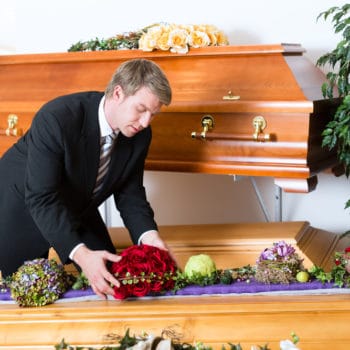Why We Love It
-
$51,200Potential Avg. Salary
-
9.9%Job Growth Rate
-
Growing DemandJob Outlook
-
Deal MakingCareer Attribute
Event planners plan and execute on all activities related to hosting an event. The events they plan can span a large spectrum—they may plan weddings, business briefings, large industry seminars, and fundraising events, among others. They plan logistics, hire entertainment, and organize agendas.
Recommended Schools
What is an Event Planner?
The following job responsibilities are common for individuals in event planner roles:
- Gather upfront information about the goals of an event, its budget, and any special requests
- Choose an event venue and determine the duration of the event
- Coordinate speakers, catering, workshops, and other event entertainment
- Produce event agendas, and ensure attendees have all necessary details
- Market event, when required, to garner interest and increase ticket sales
A Day in the Life
The role of an event planner is both complex and crucial. Planning an event—whether it’s a wedding, business-to-business (B2B) briefing, or industry seminar—requires a significant amount of time, fierce attention to detail, and a deep understanding of the event’s audience. The event planner simplifies the process of organizing the event for clients/employers, and designs events that delight attendees. They coordinate event detail, from choosing the location of the event to selecting its entertainment.
In a business environment, event planners may plan briefings, industry seminars, or fundraisers. The meetings planned in this environment may last one evening, or they may span several days. The event planner must organize all details of the events while staying within a specified budget. They choose the venue, recruit speakers and presenters, schedule catering services, market the event to increase ticket sales, create an agenda, schedule side event like workshops, and ensure everything goes as planned.
But planning these events isn’t the event planner’s only responsibility. He/she usually also has responsibilities for ensuring the event is profitable, and gathering attendee feedback on the event to measure the event’s success. Event planners may have specific goals to meet, such as increasing ticket sales, producing a specific number of leads, or attracting new customers. They use a variety of tools to meet and report on these objectives, including social media, surveys and polls, and event analytics.
Typical Work Schedule
Most of the time, event planners work full-time schedules during normal business hours. However, they commonly work overtime as an event gets nearer to finalize all details, and they may be required to work evenings and/or weekends if events are scheduled outside of normal business hours.
Projected Job Growth
Events have become an increasingly important marketing activity in recent years for businesses. This is expected to increase demand for event planners in the coming decade as businesses will need meeting and event planners and coordinators to organize their events.
Event Planner Specializations
- Wedding planners help engaged couples plan and organize all activities and logistics for wedding ceremonies and receptions.
- Briefing planners schedule, organize, and orchestrate special business-to-business meetings, commonly held in a company’s on-site executive briefing center.
- Event coordinators organize large-scale industry events that commonly span multiple days, are focused on a specific industry practice, feature industry influencers, and attract attendees from all over the world.
- Nonprofit event planners organize fundraising dinners, activities, and galas for nonprofit companies.
Typical Employers
Event planners can be employed by private companies in all industries, as well as nonprofit organizations. They also work for government, typically as part of tourism departments and convention centers. Some event planners—specifically wedding planners—are self-employed and take on clients on a freelance basis.
Recommended Schools
How To Become an Event Planner
Most employers expect event planners to have a bachelor’s degree. In college, you may be able to find programs in event and meeting management, though business degrees, hospitality degrees, and tourism management degrees are sufficient as well. In some cases—particularly for wedding planners—a degree may not be a prerequisite. However, for all event planner jobs, the employer or client will want someone who either has the appropriate degree or a sufficient amount of professional experience.
After earning a degree, you should be able to find entry-level positions in event planning. Because the role of event planner is large, complex, and time-consuming, experienced event planners hire people to assist them—either interns or entry-level roles. By accepting one of these positions, you can learn the responsibilities of the role by studying under an experienced event planner, which will prepare you to work on your own as main event coordinator after gaining enough experience.
Some event planners also choose to pursue certification to make themselves more competitive for open roles. A popular certification is the Certified Meeting Professional (CMP) offered by the Convention Industry Council. This certification can only be pursued if you have 3 years of professional experience in event planning and are able to pass a written exam. Additionally, continuing education will be required in order to maintain your certification.
Event Planner Salary Data
We’ve provided you the following to learn more about this career. The salary and growth data on this page comes from recently published Bureau of Labor Statistics data while the recommendations and editorial content are based on our research.
National Anual Salary
Low Range
$34,510Average
$51,200High Range
$82,050National Hourly Wage
Low Range
$17/hrAverage
$25/hrHigh Range
$39/hrHow do Event Planner salaries stack up to other jobs across the country? Based on the latest jobs data nationwide, Event Planner's can make an average annual salary of $51,200, or $25 per hour. This makes it an Above Average Salary. On the lower end, they can make $34,510 or $17 per hour, perhaps when just starting out or based on the state you live in.
Salary Rankings And Facts
#375 Nationally for All Careers
Programs and Degrees
Here are the most common degrees for becoming an Event Planner. a is usually recommended and specifically a degree or coursework that prepares you for the particular field, see below.
Highest Education Among Event Planners
- 1.5% Doctorate
- 10.7% Masters
- 50.7% Bachelors
- 8.6% Associates
- 18.5% College
- 8.5% High School
- 1.5% Less than High School
Job Growth Projections and Forecast
2014 Total Jobs
100,0002024 Est. Jobs
109,900Job Growth Rate
9.9%Est. New Jobs
9,900How does Event Planner job growth stack up to other jobs across the country? By 2024, there will be a change of 9,900 jobs for a total of 109,900 people employed in the career nationwide. This is a 9.9% change in growth over the next ten years, giving the career a growth rate nationwide of Below Average.
Growth Rankings And Facts
#204 Nationally for All Careers
What Companies Employ The Most Event Planners
| Industry | Current Jobs | New Jobs Needed | % Increase |
|---|---|---|---|
| Self-employed workers | 13,100 | 700 | 1% |
| Other support services | 6,300 | 1,800 | 2% |
| Colleges, universities, and professional schools; private | 4,100 | 1,000 | 1% |

















